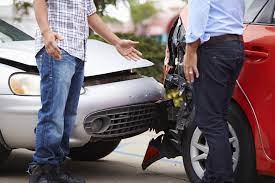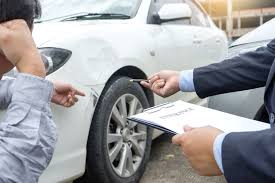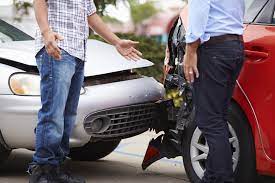Who is liable for an accident in a company vehicle? If you’ve been involved in an accident while driving a company vehicle, there will be a lot of questions about who’s responsible. Who is liable for the damages? What if the driver hasn’t yet turned 18 years old? Can employers be held responsible for incidents that occur off-site? We’ll take a look at some common scenarios and find out how to handle them properly.
On the Job
If you’re driving a company car during your normal work hours, it’s your employer’s responsibility. You should not be held liable for any damages caused by the accident. This is because the vehicle was provided to you as part of your job and it was used in the course of carrying out that work.
However, if you get into an accident while driving on behalf of your company after hours or outside of normal working hours then it could be deemed that this is personal use rather than business use. If this is found to be the case then you may be held responsible for any damages caused by the accident and may even face disciplinary action from your employer for using their car in such circumstances.
Reckless Driving
Reckless driving is a crime, and can result in jail time. It is defined as operating a vehicle in a manner that endangers or is likely to endanger persons or property.
Reckless driving is a misdemeanor, and can result in fines up to $1,000 and/or up to six months of incarceration. Reckless driving convictions also carry license suspensions of one year for the first offense and three years for each subsequent offense.
Driver’s License

The driver’s license is a legal document issued to each state resident that allows you to drive. It is not a guarantee of skill or safety. A driver’s license can be revoked, suspended, denied, or otherwise altered. The responsibility of driving safely is placed on the driver, not the government or anyone else.
After Hours
When you’re driving for personal use, you’re liable for any accidents that result from your negligence. If you are driving a company vehicle for business purposes and get into an accident, the company is responsible for any damage to property or injury to people in the vehicle, even if it’s not your fault! However, if you’re in between those two scenarios, for instance, if you drove out of work at 6 p.m., but then got caught up in traffic on the way home, it depends on whether or not you were on duty when the crash occurred.
Is your business liable for an employee’s accident in a company car?
When you’re driving a company car, you don’t need to worry about the liability of your own vehicle. That responsibility belongs solely to your employer.
However, there are some questions that may arise when it comes to accidents in a company car. For example: Is your business liable for an employee’s accident in a company car?
The short answer is yes! If the driver of the vehicle is an employee or contractor for your company, then they’re considered part of its operation and fall under its insurance coverage (assuming they have auto insurance). As such, if they cause an accident while using one of these vehicles while on duty or on behalf of their employer, then any injured parties can claim against them instead of suing directly against the business owner, which would be extremely expensive and time-consuming!
Is it the driver, the vehicle owner or the employer at fault? It depends on who was driving and what they were doing at the time of the accident.
The person who was driving the vehicle at the time of an accident is liable for damages.
If you were hit by a company-owned car, truck or van on your way to work and suffered injuries as a result, you may be able to recover compensation from whoever was driving. This applies even if they were not using their own personal vehicle and were simply employed by that company to drive its vehicles.
There are many different factors which can determine whether someone was “driving” a vehicle in Texas:
- The state defines “operating” as controlling or operating; even if this means setting up GPS. This definition covers people who sit behind the wheel while another person drives them around town, even if they’re sitting back with their feet up reading a book!
- If there’s no one else in the car with him at all times (as per state law), it means he has control over what happens when things go wrong; like when he veers off into another lane without checking first whether it’s clear before doing so! He could also be liable even if he didn’t physically touch any part of his vehicle during its journey because according to state laws: “Operator” includes any person who causes movement through action (such as pressing down on gas pedal) or inaction (such as releasing brake pedal).
Learn how to reduce liability risks when using a company vehicle.
When you use a company vehicle, knowing the rules of the road is especially important. A person who causes an accident while driving a company vehicle may be held liable for damages if they were not authorized to drive the car. If you use your own car for work purposes and cause an accident, however, it’s typically easy to prove that you were acting within the scope of your employment and are therefore not liable for damages. But when using a company car, it’s harder to establish this as fact because there’s no contract between yourself and your employer.
In order for employers to protect themselves from being financially responsible for accidents caused by employees driving their vehicles on business trips or other related activities such as work-related travel or commuting back home from work (or vice versa), they must first obtain specific permission from their employees before allowing them access to these vehicles at all times; otherwise they could still potentially face lawsuits even if those individuals weren’t doing anything illegal!
The best way around this potential liability issue is by simply reading through all documents thoroughly before signing up, including any disclaimers relating specifically towards insurance coverage during travel time frames like weekends/holidays etcetera.”
Conclusion
There are many factors that play into who is liable for a car accident in a company vehicle. If you were involved in such an accident, it’s best to seek legal advice from an attorney who can help explain the different options available to you. The attorneys at my firm specialize in personal injury cases and can provide valuable insight into your case!






